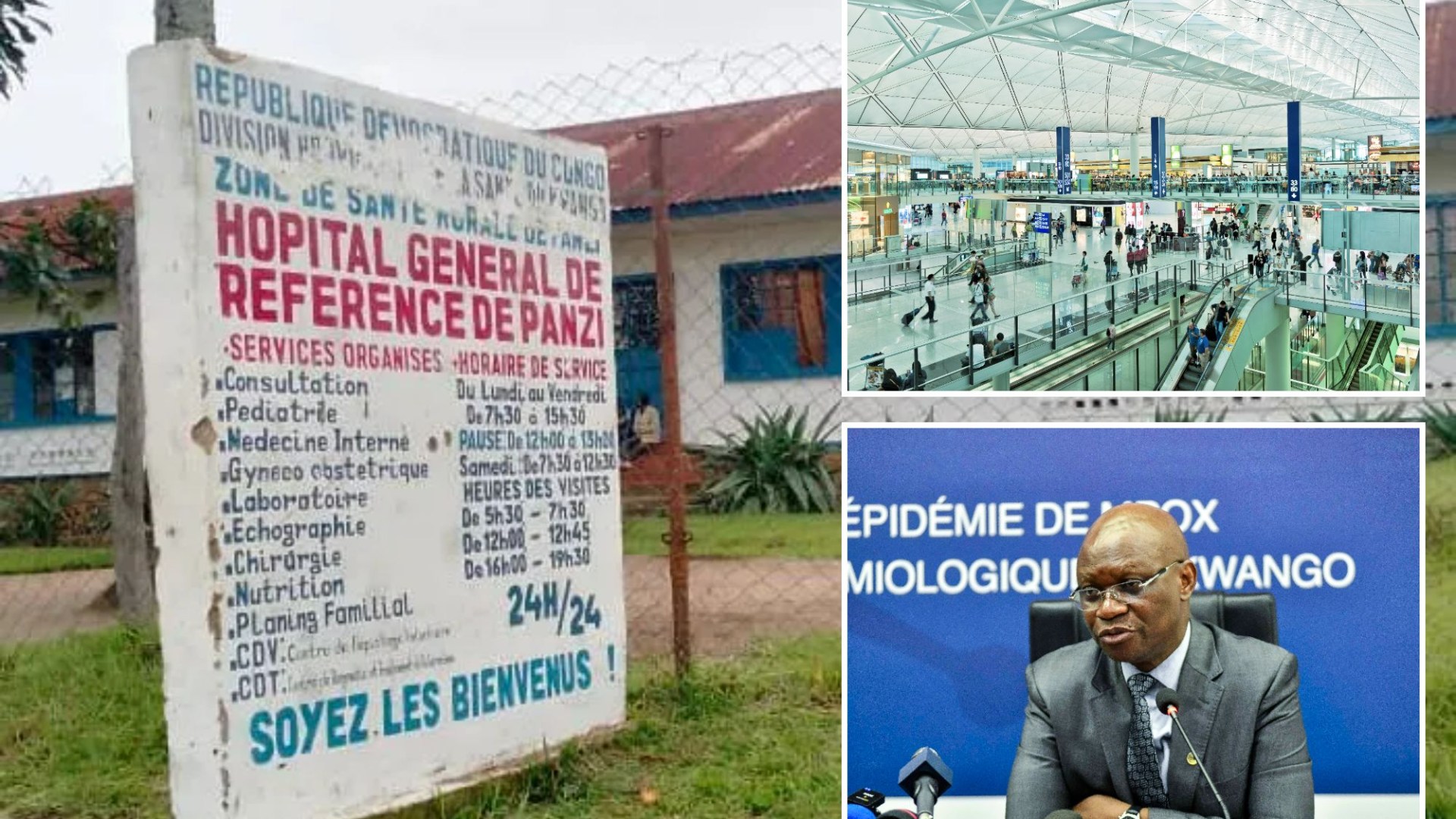CHILDREN under five are most at risk of a mysterious illness dubbed ‘Disease X’ emerging in the Democratic Republic of the Congo.
The flu-like illness has infected 406 people in recent weeks, the World Health Organization (WHO) said today, as an airport races to contain the spread.
5

5

5
The unknown pathogen is spreading in Panzi, a remote region, and is believed to have killed at least 31 people since October.
The number of deaths reported by the WHO differs from previous estimates. Initial reports listed anywhere from 71 to 143 deaths.
Late Thursday, Hong Kong announced tighter airport screenings for passengers flying in from Johannesburg and Addis Ababa.
Over in Japan, officials are urging citizens to skip unnecessary trips to the affected region.
Specialists have ruled out coronavirus, but have concluded that the disease affects the respiratory system.
WHO said pathogens such as influenza are being investigated as a possible cause, of malaria, measles and others.
The symptoms of the disease, the cause of which has not been established, are fever, headache, cough, runny nose and body aches.
The UN health agency revealed that all severe cases involved individuals suffering from extreme malnutrition, with most of them being children under five.
Over 64 per cent of all cases have been reported in people under the age of 14.
And approximately 53 per cent of all cases have occurred in children under five years of age.
Most deaths also have occurred in children; half of all deaths have occurred in children under the age of five
“The area is rural and remote, and the ongoing rainy season has made access even harder,” they noted.
They added that limited diagnostic resources in the region have slowed efforts to pinpoint the root cause.
‘High fevers, vomiting…and then death’
The Africa’s Centers for Disease Control and Prevention appeared to label the virus ‘Disease X’ during an online press briefing on Thursday and on its X account.
The name is used by the WHO and given to a hypothetical pathogen that has pandemic potential.
It is feared to be airborne – passed via small droplets when breathing or talking – said Dieudonne Mwamba, director general of the National Public Health Institute.
He added: “We don’t know if we are dealing with a viral disease or a bacterial disease.”
A Panzi resident, Claude Niongo, said his wife and seven-year-old daughter died from the disease.
“We do not know the cause but I only noticed high fevers, vomiting…and then death,” Niongo told The Associated Press.
Dr Matshidiso Moeti, WHO regional director for Africa, said: “Our priority is to provide effective support to the affected families and communities.
“All efforts are underway to identify the cause of the illness, understand its modes of transmission and ensure appropriate response as swiftly as possible.”

5

5
Access to the region is difficult by road and health infrastructure is lacking.
Residents also face a shortage of drinking water and medicine.
Just over 60 per cent of people in the region suffer from malnutrition, especially children, making it one of the highest rates in the country, Congo’s health minister Roger Kamba, said.
He said that the region had already suffered a serious typhoid fever epidemic two years ago.
The DRC is also currently battling an epidemic of a dangerous new strain of mpox, known as clade 1b.
Since the beginning of the year, the virus has killed more than 650 people and infected 20,000.
Should we be worried?
Prof Paul Hunter, Professor in Medicine, University of East Anglia, said: “We still know very little about this, however given the difficulties in identifying mild infections in Central Africa, the infection likely has a much lower mortality rate than these figures would suggest.
Symptoms of the mystery ‘flu-like’ bug
A mysterious disease with flu-like symptoms has killed dozens of people in the Democratic Republic of Congo
So far, we know some of the symptoms include:
- Fever
- Headache
- Cough
- Anaemia
- Difficulty breathing
“The illness appears to be predominantly a respiratory infection with symptoms including fever, headache, nasal congestion, cough, difficulty breathing, and anaemia.
“The big question is what is likely to be causing this and that I don’t know for certain.
“The mention of anaemia makes me think of mycoplasma pneumonia but it is too early to make a definite diagnosis until further analyses are reported.”
Last winter, Northern China saw a huge surge in cases of the disease – also known as ‘white lung syndrome’ – among children.
The infections lead to the return of masks and social distancing in a chilling echo of lockdown measures enforced during the pandemic.
A surge in cases of pneumonia has also been recorded in the UK, Denmark, the Netherlands, Sweden, Switzerland and Singapore.
Dr Jake Dunning, senior research fellow and consultant in infectious diseases at the University of Oxford’s Pandemic Sciences Institute, said: “I’d say there are multiple, potential infectious causes for this unidentified illness cluster, based on the symptoms described and descriptions of who is being affected the most, and there are some possible non-infectious causes too.
“Speculating about causes for unidentified illness events – which happen periodically, especially in African countries – is not helpful and can sometimes be harmful.”
He said a mystery bug causing sickness is “always of concern and worthy of investigation”.
Dr Dunning also cautioned against dubbing the mysterious illness as ‘Disease X’.
The name comes from WHO scientists and represents a hypothetical pathogen that could emerge in future and cause a serious international epidemic or pandemic.
It was added to the WHO’s list of nine priority diseases in 2018. “Calling this incident a ‘Disease X’ outbreak; at this point is simply wrong and counterproductive,” said Dr Dunning.
Dr Michael Head, senior research fellow in global health at the University of Southampton, added: “At time of writing, there is a huge amount of uncertainty about this outbreak.
“Outbreaks like this will happen many times around the world.
“Typically, they are brought under control without spreading too widely, and we may or may not ever find out the exact bug that caused the infections.
“This rural area in the DRC also means the public health response is more complicated.
“However, the country has had mpox and Ebola outbreaks in recent, so they are experienced at addressing infectious disease epidemics.”




